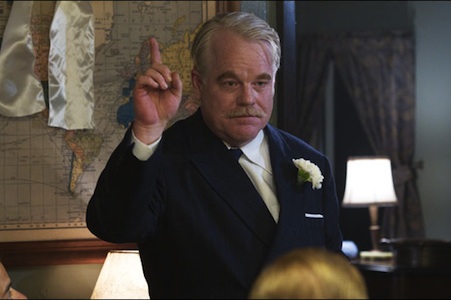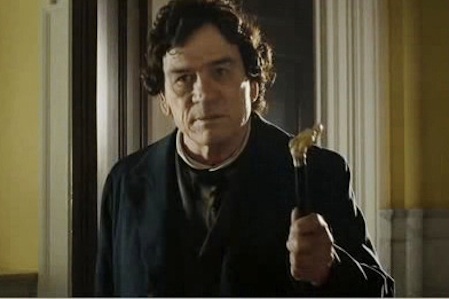[Editor’s note: This is the second in a series of video essays championing the most deserving Oscar nominees. For the full list of video essays, see the Oscar index main page.]
This year’s Best Supporting Actor nominees are all previous Oscar winners, which eliminates some of the career achievement concerns that can affect these awards. Let’s hope that puts more emphasis on the quality of the performances, which are all worthy of consideration.
As a wisecracking, world-weary Hollywood producer, Alan Arkin gives a light-hearted lift to Argo’s political thriller proceedings. In Lincoln, Tommy Lee Jones plays the salty senator Thaddeus Stevens. Jones’ performance lives in his eyes. It shows the mental activity of an old man challenged to rethink his politics in order to achieve his lifelong dream of abolishing slavery. Jones is currently the narrow favorite to win the Oscar, but I think there are three performances better than his.
See for yourself. Watch the video.
[iframe width=”640″ height=”360″ src=”http://www.youtube.com/embed/MMzZ93_9tbw” frameborder=”0″ allowfullscreen]
In Django Unchained, Christoph Waltz is a ruthless bounty hunter whose conscience awakens when he helps a freed slave on his quest. Waltz is a master of playing surface-level civility. But in this film, he peels away those layers ever so gradually to reveal his moral outrage seething underneath.
Robert De Niro gives his best performance in years in The Silver Linings Playbook. He plays a football-fixated father, whose attempts to help his son are undermined by his own manic temperament. It’s a display of late-career virtuosity, showing the emotional range he’s mastered over a lifetime: from explosive menace to wisecracking warmth. In this film, he adds an extra dimension through a sense of advanced age and frailty, which he uses to disarming pathos in this scene. But as it turns out, this emotional display is a put-on, as he just wants to loop his son into a crazy scheme. De Niro’s character is an inspired creation of demented obsession, charged with startling vitality.
But I have to give the top prize to Philip Seymour Hoffman for his work as the self-help guru Lancaster Dodd in The Master. It surprises me to say this because I’m not even sure if it’s a complete performance—by the end, his character seems to disappear into the movie’s unresolved clouds of ambiguity. But for the first 90 minutes of The Master, Hoffman is key to making this film work. He’s a pillar of authoritative self-control, a counterbalance to Joaquin Phoenix’s utterly unhinged lead performance.
But Hoffman is doing more than just playing the straight man. There’s an unforgettable scene where Hoffman’s Dodd first processes Phoenix. From Dodd’s face and his line of questioning, we see a refined man fascinated by a wild beast of a human, but we catch a glimpse of that same wildness lurking in him as well. That wildness explodes in a later scene when Hoffman is ambushed, and his lack of self-mastery is exposed. In just these two scenes, Hoffman is able to chart out the entire three-dimensional psychic landscape of a character. It’s this richness that keeps us watching even as the film takes us to increasingly difficult territory.
This is the first in a series on the Oscar nominees. For the full list of video essays, see the Oscar index main page.
Kevin B. Lee is Editor in Chief of IndieWire’s PressPlay Video Blog, Video Essayist for Fandor’s Keyframe, and a contributor to Roger Ebert.com. Follow him on Twitter.





